Copyright Copyright Dedication Chapter 1 Chapter 2 Chapter 3 Chapter 4 Chapter 5 Chapter 6 Chapter 7 Chapter 8 Chapter 9 Chapter 10 Chapter 11 Chapter 12 Chapter 13 Chapter 14 Chapter 15 Chapter 16 Chapter 17 Chapter 18 Chapter 19 Chapter 20 Chapter 21 Chapter 22 Chapter 23 Chapter 24 Chapter 25 Chapter 26 Chapter 27 Chapter 28 Chapter 29 Chapter 30 Chapter 31 Chapter 32 Chapter 33 Chapter 34 Chapter 35 Chapter 36 Chapter 37 Chapter 38 Chapter 39 Chapter 40 Chapter 41 Chapter 42 Chapter 43 Chapter 44 Chapter 45 Chapter 46 Chapter 47 Chapter 48 Chapter 49 Acknowledgements About the Author By the Same Author About the Publisher
Published by Avon an imprint of
HarperCollins Publishers Ltd
1 London Bridge Street,
London SE1 9GF
www.harpercollins.co.uk
First published in Great Britain by HarperCollins Publishers 2013
Copyright © Paul Finch 2013
Cover photographs © Arcangel & Roberto Pastrovicchio
Cover design © Henry Steadman 2013
Paul Finch asserts the moral right to be identified as the author of this work.
A catalogue copy of this book is available from the British Library.
This novel is entirely a work of fiction. The names, characters and incidents portrayed in it are the work of the author’s imagination. Any resemblance to actual persons, living or dead, events or localities is entirely coincidental.
All rights reserved under International and Pan-American Copyright Conventions. By payment of the required fees, you have been granted the non-exclusive, non-transferable right to access and read the text of this e-book on screen. No part of this text may be reproduced, transmitted, down-loaded, decompiled, reverse engineered, or stored in or introduced into any information storage and retrieval system, in any form or by any means, whether electronic or mechanical, now known or hereinafter invented, without the express written permission of HarperCollins.
Source ISBN: 9780007492312
Ebook Edition ISBN: 9780007492329
Version: 2017-11-14
Dedication Dedication Chapter 1 Chapter 2 Chapter 3 Chapter 4 Chapter 5 Chapter 6 Chapter 7 Chapter 8 Chapter 9 Chapter 10 Chapter 11 Chapter 12 Chapter 13 Chapter 14 Chapter 15 Chapter 16 Chapter 17 Chapter 18 Chapter 19 Chapter 20 Chapter 21 Chapter 22 Chapter 23 Chapter 24 Chapter 25 Chapter 26 Chapter 27 Chapter 28 Chapter 29 Chapter 30 Chapter 31 Chapter 32 Chapter 33 Chapter 34 Chapter 35 Chapter 36 Chapter 37 Chapter 38 Chapter 39 Chapter 40 Chapter 41 Chapter 42 Chapter 43 Chapter 44 Chapter 45 Chapter 46 Chapter 47 Chapter 48 Chapter 49 Acknowledgements About the Author By the Same Author About the Publisher
For my lovely wife, Catherine, whose selfless and unswerving support has been the bedrock on which I’ve built my career
Contents
Cover
Title Page
Copyright
Dedication
Chapter 1
Chapter 2
Chapter 3
Chapter 4
Chapter 5
Chapter 6
Chapter 7
Chapter 8
Chapter 9
Chapter 10
Chapter 11
Chapter 12
Chapter 13
Chapter 14
Chapter 15
Chapter 16
Chapter 17
Chapter 18
Chapter 19
Chapter 20
Chapter 21
Chapter 22
Chapter 23
Chapter 24
Chapter 25
Chapter 26
Chapter 27
Chapter 28
Chapter 29
Chapter 30
Chapter 31
Chapter 32
Chapter 33
Chapter 34
Chapter 35
Chapter 36
Chapter 37
Chapter 38
Chapter 39
Chapter 40
Chapter 41
Chapter 42
Chapter 43
Chapter 44
Chapter 45
Chapter 46
Chapter 47
Chapter 48
Chapter 49
Acknowledgements
About the Author
By the Same Author
About the Publisher
The whole of Holbeck should be bombed.
That was Alan Ernshaw’s view. Okay, he was a relatively new police officer – just ten months in the job – so if anyone overheard him make such a politically incorrect statement and complained, he’d have an excuse. But the gaffers still wouldn’t be impressed. Holbeck, the old warehouse district located just south of Leeds city centre, might well consist mainly of buildings that were now empty shells, its Victorian terraced housing might now mostly be derelict, the few parts of it that were inhabited reduced to grotty concrete cul-de-sacs strewn with litter and covered in graffiti, but policemen didn’t take these sorts of things personally anymore. Or at least, they weren’t supposed to.
Ernshaw yawned and scratched the dried razor-cut on his otherwise smoothly shaven jaw.
Radio static crackled. ‘ 1762 from Three? ’
Ernshaw yawned again. ‘Go ahead.’
‘ What are you and Keith doing, over? ’
‘Well we’re not sitting down for a turkey dinner, put it that way.’
‘ Join the club. Listen, if you’ve nothing else on, can you get over to Kemp’s Mill on Franklyn Road? ’
Ernshaw, who was from Harrogate, some fifteen miles to the north, and still didn’t completely know his way around West Yorkshire’s sprawling capital city, glanced to his right, where PC Keith Rodwell slouched behind the steering wheel.
Rodwell, a heavy-jowled veteran of twenty years, nodded. ‘ETA … three.’
‘Yeah, three minutes, over,’ Ernshaw said into his radio.
‘ Thanks for that .’
‘What’s the job?’
‘ It’s a bit of an odd one actually. Anonymous phone call says we’ll find something interesting there .’
Rodwell didn’t comment, just swung the van into a three-point turn.
‘Nothing more?’ Ernshaw asked, puzzled.
‘ Like I say, it’s an odd one. Came from a call-box in the city centre. No names, no further details .’
‘Sounds like a ball-acher, but hey, we’ve nothing else to do this Christmas morning.’
‘ Much appreciated, over .’
It wasn’t just Christmas morning; it was a snowy Christmas morning. Even Holbeck looked picture-postcard perfect as they cruised along its narrow, silent streets. The rotted facades and rusted hulks of abandoned vehicles lay half-buried under deep, creamy pillows. Spears of ice hung glinting over gaping windows and bashed-in doors. The fresh layer muffling the roads and pavements was pristine, only occasionally marked by the grooves of tyres. There was almost no traffic and even fewer pedestrians, but it wasn’t nine o’clock yet, and at that time on December 25 only fools like Ernshaw and Rodwell were likely to be up and about.
Or so they’d assumed.
‘Something interesting …’ Ernshaw mused. ‘What do you think?’
Rodwell shrugged. He spoke in monosyllables at the best of times, and as he was now deep in thought there wasn’t much chance even of that.
‘Bunch of druggies or something?’ Ernshaw added. ‘Squatting? If that’s it they’ll all be dead by now. Must’ve been minus-ten last night, easily.’
Again, Rodwell shrugged.
Kemp’s was a former flax-spinning mill, but it had been closed now for nearly two decades and was a forlorn reminder of prosperous times past. Its tall octagonal chimney was still intact, the square windows arrayed in uniform rows across its dingy frontage were largely unbroken, and most of its ground-floor entrances were supposedly chained shut, but, like so many of the derelict buildings around here, it wouldn’t be difficult for determined intruders to force entry.
Читать дальше
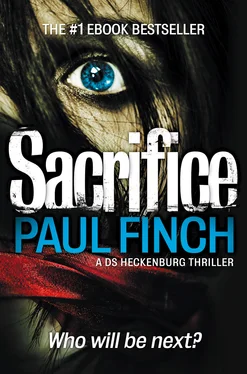
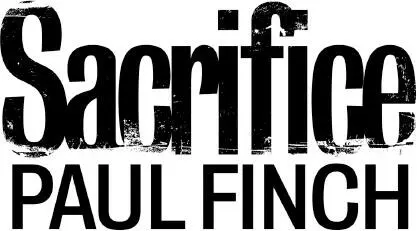
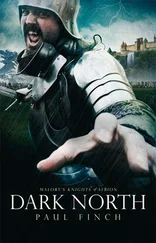
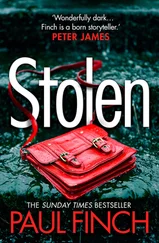
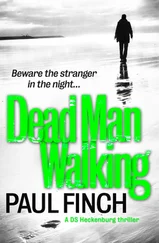
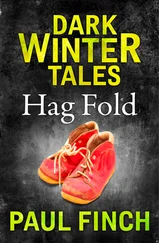
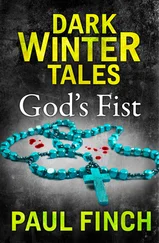
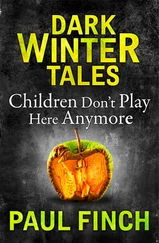
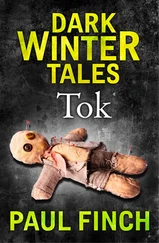
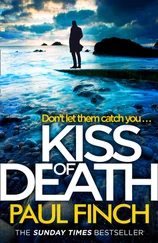
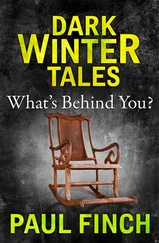

![Paul Finch - A Wanted Man [A PC Heckenburg Short Story]](/books/702381/paul-finch-a-wanted-man-a-pc-heckenburg-short-sto-thumb.webp)
